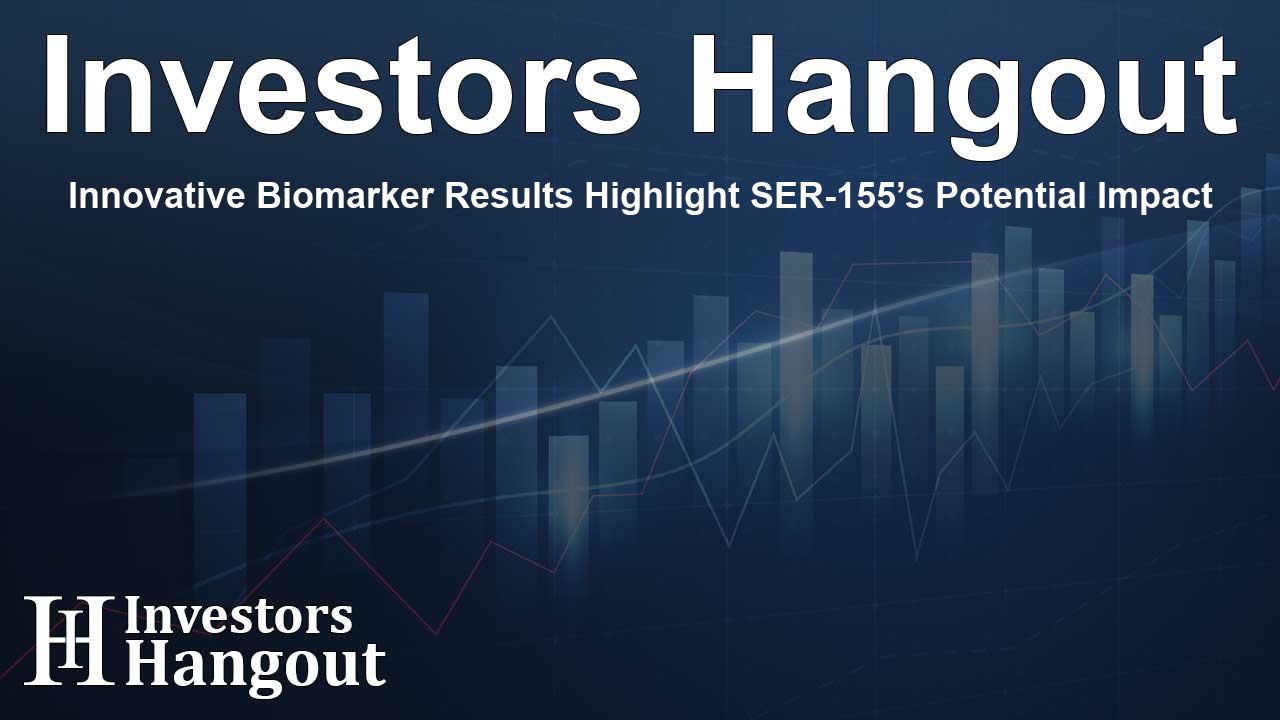Innovative Biomarker Results Highlight SER-155’s Potential Impact

Recent Breakthroughs in SER-155 Biomarker Research
New findings from the SER-155 Phase 1b clinical study indicate that SER-155, a live biotherapeutic candidate, has remarkable effects on patients undergoing allogeneic hematopoietic stem cell transplantation (allo-HSCT). The latest biomarker results demonstrate that SER-155 significantly enhances epithelial barrier integrity and reduces systemic inflammatory markers when compared to a placebo. These findings are not just critical for understanding the treatment's efficacy but also underscore SER-155's transformative potential in addressing inflammatory and immune disorders.
Understanding the Mechanism of Action
The Phase 1b study yielded important insights into how SER-155 manages to reduce the occurrence of bloodstream infections (BSIs). Specifically, the study showed a remarkable 77% reduction in relative risk for BSIs. This outcome is largely attributed to SER-155's ability to strengthen the intestinal barrier, which minimizes the chances of harmful bacteria sullying the bloodstream. The research broadly supports the idea that SER-155 could serve as a cornerstone treatment for various inflammatory conditions, including inflammatory bowel diseases (IBD) such as Crohn’s disease and ulcerative colitis.
Insights from Expert Commentary
Wendy Garrett, M.D., Ph.D., from Harvard University, praised the new biomarker data, linking these results to the promising clinical outcomes observed. She affirmed that the advancements in understanding SER-155's influence on the body's immune response could open doors not only for treating infections but also for managing multiple inflammatory diseases. These perspectives highlight how SER-155 isn't just another treatment but a potential frontrunner in the field of therapeutic approaches.
Corporate Developments and Financial Outlook
Seres Therapeutics, Inc. (Nasdaq: MCRB) continues to make substantial strides in enhancing the clinical development of SER-155. Following the recent breakthrough therapy designation from the FDA for SER-155, the company has developed a comprehensive Briefing Book for a forthcoming meeting with the agency. They are gearing up for a pivotal registrational study that aims to further validate SER-155's efficacy in preventing BSIs among allo-HSCT patients.
Financially, the company is in a stable position with around $31 million in cash and equivalents as of the year's close. The anticipated installment payments linked with the sale of VOWST are also expected to bolster funding capacity into early 2026, ensuring adequate resources for ongoing and future clinical initiatives.
The Competitive Landscape and Market Insights
Recent market research has highlighted that both healthcare professionals and payers view SER-155 positively, marking a significant unmet need for effective preventative measures against BSIs in allo-HSCT patients. As both groups recognize the high stakes involved with BSIs—viewer concern stemmed from their frequency and poor outcomes—the notion of SER-155 providing preventive solutions is viewed as a strong value proposition. Payers anticipate that SER-155 could be covered under outpatient pharmacy benefits, enhancing its accessibility for patients.
Broader Implications for Patients
The commitment of Seres Therapeutics to advancing SER-155 can potentially reshape the treatment landscape for medically vulnerable populations. Beyond its focus on allo-HSCT patients, SER-155 holds promise for various groups that experience heightened susceptibility to infections, including cancer patients on chemotherapy, organ transplant recipients, and others facing impaired immune function.
Future Directions for SER-155
Seres Therapeutics is not just focused on immediate results but on long-term growth and expanded applications of SER-155. Through partnerships aimed at bolstering research efforts and increasing production capabilities, the company is poised to explore various diseases against which SER-155 might provide clinical support. The ongoing evaluation of SER-155 for different indications could further broaden its impact on public health.
Frequently Asked Questions
What is SER-155?
SER-155 is an investigational live biotherapeutic designed to prevent bacterial infections and enhance immune response among patients undergoing allo-HSCT.
How does SER-155 work?
SER-155 enhances epithelial barrier integrity, which helps reduce systemic inflammation and the risk of bloodstream infections.
What recent data supports SER-155’s clinical efficacy?
Recent biomarker data show a significant reduction in fecal albumin and systemic inflammatory markers following SER-155 treatment in clinical trials.
What are the future prospects for SER-155?
Seres Therapeutics plans to engage with the FDA for further studies to support the efficacy of SER-155 and broaden its potential applications.
What makes SER-155 a strong market contender?
The high unmet need in preventing BSIs, paired with positive feedback from healthcare professionals and payers, positions SER-155 as a promising commercial opportunity.
About Investors Hangout
Investors Hangout is a leading online stock forum for financial discussion and learning, offering a wide range of free tools and resources. It draws in traders of all levels, who exchange market knowledge, investigate trading tactics, and keep an eye on industry developments in real time. Featuring financial articles, stock message boards, quotes, charts, company profiles, and live news updates. Through cooperative learning and a wealth of informational resources, it helps users from novices creating their first portfolios to experts honing their techniques. Join Investors Hangout today: https://investorshangout.com/
Disclaimer: The content of this article is solely for general informational purposes only; it does not represent legal, financial, or investment advice. Investors Hangout does not offer financial advice; the author is not a licensed financial advisor. Consult a qualified advisor before making any financial or investment decisions based on this article. The author's interpretation of publicly available data presented here; as a result, they should not be taken as advice to purchase, sell, or hold any securities mentioned or any other investments. If any of the material offered here is inaccurate, please contact us for corrections.